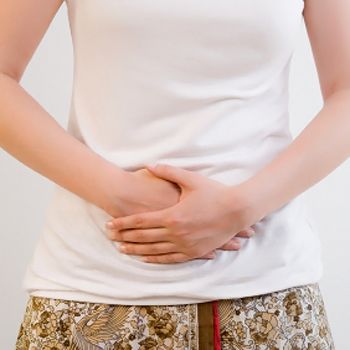Menstrual periods usually last few days, but periods as short as two days or as long as seven may be normal. Menstrual flow is usually heaviest in the first two days. Most women have some occasional pain or discomfort during their period. Typical symptoms include cramps, headache, nausea, backache, and fatigue. Menstrual cramps are most often felt in the lower abdomen but may also occur in the lower back or spread down the legs. The medical term is dysmenorrhea. Menstrual cramps affect as many as 50 percent of women of reproductive age and it is 60 percent to 80 percent of teenage girls.
- Keeps a healthy diet:
Include plenty of fresh fruit and vegetables, as well as plenty of water. To help combat the multitude of symptoms during the menstrual cycle, eat healthfully throughout the month. Take in a variety of fruits, veggies, whole grains, lean proteins, low-fat dairy, and healthful oils (mono-unsaturated and Omega-3s), which provide a plethora of nutrients.Vitamin B6 has often been recommended to relieve PMS symptoms.
- Take dietary supplements:
Take extra calcium, magnesium and vitamin D. calcium may also be the only one that has shown promising results. It has been determined that estrogen regulates calcium metabolism.
Calcium is an important mineral that many women fall short on. You may also take a megavitamin and mineral supplement containing vitamin B3 (also called niacin; 500 mg twice daily), vitamin E (400 mg once daily), magnesium citrate malate (400 mg twice daily), and either calcium citrate malate or calcium citrate (500 mg four times a day).
- Have regular health check-ups:
Tell your doctors any menstrual problems you feel you might be having, and take into consideration how conditions such as IBS or anemia may make you feel during menstruation. Also to ensure vaginal health, mention to doctors any menstrual problems you feel you might be having, and take into consideration how conditions such as IBS or anemia may make you feel during menstruation.
- Xenoestrogens and Phytoestrogens:
Some new scientific evidence points to xenoestrogens and phytoestrogens actually causing menstrual cramps Up-to-date scientific evidence aims to Xenoestrogens and Phytoestrogens for menstrual cramp relief. Xenoestrogens are merely “foreign” estrogens that are not easily estrogen but mimic estrogen. Xenoestrogens can be chemicals gift in items used in daily living such as lotions, shampoos, and washing detergent.
Phytoestrogens are plant estrogen’s that can be discovered in some herbs. Whenever you void Xenoestrogens and Phytoestrogens, there will be menstrual cramp relief. Xenoestrogens and Phytoestrogens can cause Magnesium and B vitamin inadequacies. A Magnesium deficiency can cause muscles to cramp. A B vitamin deficiency can cause Neuropathy. Infer Restless Leg Syndrome. Topical Natural Progesterone may counteract Xenoestrogens and Phytoestrogens, whenever the body load of Xenoestrogens and Phytoestrogens isn’t too high.
- Use painkillers:
Some women find it to ease pain if they lay face down on a bed, then get on their knees, sticking their butt up in the air, but leaving their head on the pillow. Try placing a hot water bottle or heating pad on your abdomen.
- Do some mild exercise:
You can also rehearsal by going for a walk or jog, motorcycle ride, or other additional workouts that you love to do. Also do regular exercise.
- Distract yourself from the pain:
Some activities do help anything with the menstrual cycle. Try acupuncture, which, according to the Mayo Clinic, may help to relieve pain associated with menstrual cramps.
Engage in stress reduction activities such as yoga, massage and meditation as they may ease the pain of menstrual cramps. You may take aerobic exercises, this is reduce menstrual cramps
Other Tips:
To avoid menstrual cramps, reduce your consumption of coffee, decaffeinated coffee, black tea, and decaffeinated black tea, especially before your period.
- Reduce or eliminate drinking alcoholic beverages.
- Drink a lot of water.
- Eat a diet that is abundant in fresh organic fruits and vegetables, whole grains, and fiber.
- Eat freshly-caught, cold-water fish (such as halibut, herring, tuna, salmon, and sardines).
- Reduce intake of meat, non-organically-raised poultry, and dairy foods, as these foods can increase the production of prostaglandins in the body.
- If you typically ate poultry, shift to organically-raised poultry.
- Reduce intake of salt before your period
Warnings:
- If you think the problem could be serious, have persistent cramping or extremely heavy bleeding, consult a medical professional.
- Having an orgasm, while good exercise, does tend to make you bleed harder, so be prepared for a heavier flow on the day after. There’s a good trade-off here – the menstrual flow is just what’s there – you aren’t going to bleed any more than you normally would, it will simply make your flow heavier for a shorter time.
Women face Menstrual periods, sometime they have to face Menstrual Cramps. There are a lot of ways to reduce these cramps. Get plenty of water, do regular exercise, take dietary supplements.



